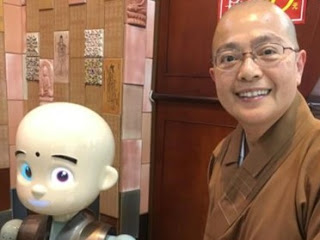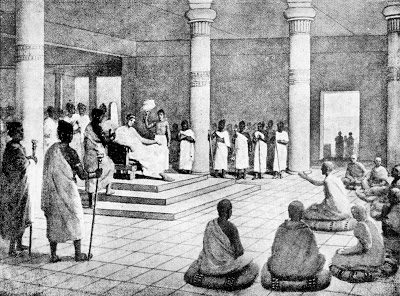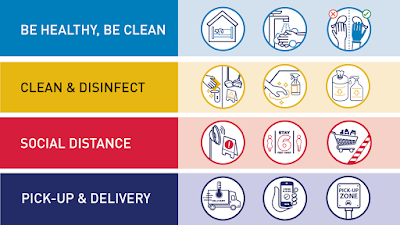
Speaker: Venerable Jue Ji
Director of Xiang Yun Temple, Austin, Texas, U.S.A
I. Introduction
Hi, this is Jue Ji speaking from Austin, Texas. It was chilling cold these days. But my heart is warm now knowing that I’m in connection with you, my dear Dharma friends in the air!
Many beginners in Buddhism ask me, how can I be more Buddhist?
What? I don’t know how to answer this question because coming from a Buddhist country in Asia—Taiwan, specifically. I have never come across such a question! A Buddhist is a Buddhist, that’s it.
As Buddhists, we worship the Buddha at home and at Buddhist temples. We learn the Buddha’s teaching, reciting Buddhist sutras, mantras, and Buddha’s names. We prostrate to the Buddha, make bows, or simply join our palms in front of Buddha statues to show our respect to the Buddha. We meditate by ourselves at home or with others in meditation room at Buddhist temples. We give moral support to one another in our Buddhist community. We go out visiting elders’ homes and orphanages to share with them Buddha Dharma and joy in life. These are so common in our daily life that there’s no question that we are practicing Buddhism and we take it for granted that, YES, this is what a Buddhist should practice.
But living in the States, a Western country where Buddhism is a minority religious faith, the scenario is quite different. How to make a Buddhist look Buddhist? That’s a good question.
In appearance, a lay Buddhist may wear a string of chanting beads for recitation of Buddha’s name.
That’s a good start.
But we can add more on to that. Please don’t misunderstand me. I don’t mean that we should wear more than one string of chanting beads to display the aura of the Buddha. It should be something that comes from the mind and manifests in our speech and deeds.
Once we become Buddhists, we have a new birth to develop our spiritual life. We need good Dharma friends to build our spiritual habits in our speech, in our behavior, and in our thought. Good Dharma friends are like our family. When we are happy, there are good Dharma friends to share with our joy; when in suffering, there are good Dharma friends to guide us through our grief.

II. Good Dharma Friends
No man is an island in this world. We all need good Dharma friends to establish a Pure Land on earth.
But where are our good Dharma friends? What are some guidelines for finding good Dharma friends? Buddhist newbies would be still in a fog.
I remember the Chinese philosopher, Confucius, once said, “There are three types of beneficial friendships: friends who are upright, friends who are sincere, and friends who have heard much.” It means that beneficial friends are upright and unselfish, sincere and magnanimous, and help to broaden our learning and knowledge.

Likewise, guidelines of good Dharma friends can be of three types, they are:
- Upright and unselfish friends
- Wise and skillful friends
- Moral and righteous friends
Let me introduce you these three types of good Dharma friends.
III. Upright and unselfish friends
Among Sakymuni Buddha’s immediate monastic disciples, Sariputra was the foremost in wisdom. Before he joined the Sangha Order, had a friend, Dhānañjāni, who was rich with high social status.
One day, someone came to Sariputra and told him, your friend Dhānañjāni was making use of his position and power to swindle our money. Hearing this, Sariputra worried about his old friend and so he went to see Dhānañjāni to rectify his wrongdoings.
Upon meeting his old friend, Sariputra did not mincing his words. He directly pointed out what people had complained about his swindling fortunes of others. At first, Dhānañjāni made excuses of needing money for taking care of his family and worshiping ancestors and heavenly deities. But knowing what the real reason was, Sariputra further forcing Dhānañjāni to tell the truth.
Dhānañjāni, then, realized that he could no longer lie to Sariputra, he admitted that it was because of his extravagant and wasteful wife. Dhānañjāni ’s wife had the habit of shopping with no budget in mind. The husband, Dhānañjāni, could not help but making use of his position and power to collect money illegally from others to meet the endless needs of his wife.

Sariputra told him that evil deeds would cause unwholesome karma in future, and admonished him that as a responsible husband, he should guide his wife to rectify her wasteful behavior. Dhānañjāni listened to his old friend’s advice and followed his instruction accordingly. Finally, the husband and the wife both re-started a brand new life in learning Buddha Dharma, accumulating merits by cultivating wholesome deeds.
Having a new birth in spiritual life, Dhānañjāni exclaimed that all his friends dared not to point out his wrongdoings. Only Sariputra was willing to tell him the truth. Sariputra was a real friend indeed.
We all need good Dharma friends like Sariputra. Once we become Buddhists, some people will respect our practice and help us observing the practice. Some people may lure us to walk on the opposite path which is against the Buddha’s teaching.
For example, we choose to be a vegetarian to observe the precept of no-killing. We want to attend our friend’s birthday party. A good Dharma friend should respect our spiritual cultivation and prepare vegetarian food, or accept our preparing vegetarian food ourselves. If our friends force us to join them in taking non-vegetarian food, then we should skillfully reject the non-vegetarian meal and avoid joining similar gatherings with these people. At the beginning, we may lose some old friends. But real friendships would pass the test of time. Mutual respect is very important in true and long lasting friendship. Eventually, we would find people who are vegetarians and are pleased to sharing with us the benefits of taking vegetarian diet. Disconnecting with some old friends who do not support our spiritual habit at the beginning could be a blessing in disguise!
IV. Wise and Skillful Friends
Under COVID-19, people easily put themselves under stress due to stay at home order and the restriction of public social gatherings. But like all things in the world are impermanent, we know that even the pandemic is subject to change. Nothing has a substantial existence. If there are good Dharma friends who can remind us this Buddhist teaching and accompany us in getting through this difficult time in pandemic, we will equip ourselves with the strength of Buddha Dharma to face the challenges in life.
There was a Greek king called Milinda in the 2nd century BC. The Milinda-panha has recorded a series of conversation between King Milinda and Bhikkhu Nagasena. One of the conversations goes like this:

King Milinda respected Bhikkhu Nagasena very much, especially for Bhikkhu Nagasena’s supreme achievement in meditation. One day, King Milinda asked, “Are the eyes yours?”
Bhikku Nagasena smiled and replied, “No.”
King Milinda further asked, “Are the ears yours?”
Bhikku Nagasena replied, “No.”
“Is the nose yours?” “No.”
“Is the tongue yours?” “No.”
“Then, is the real you the body?”
“No, the physical body is a temporary existence of co-arising.”
“Then, is the mind the real you?”
“Neither is the mind.”
After all these questions and answers, King Milinda finally asked, “Since the eyes, the ears, the nose, the tongue, and the body are not you, then where are you?”
Bhikkhu Nagasena then smiled and asked, “Is the window the house?”
King Milinda was caught off guard at first, then he replied, “No.”
“Is the door the house?” “No.”
“Are the bricks and the roof tiles the house?” “No.”
“Then are the bed, the bench, the pillars the house?” “Neither are they.”
Bhikkhu Nagasena then laughed and said, “Since the window, the door, the bricks, the roof tiles, the pillars, the bed and the bench are not the house, neither can they represent the house. Then, where is the house?”
Upon hearing this, King Milinda got enlightened.
What is King Milinda’s enlightenment?
It is “dependent origination!” All phenomena in the world are nothing but the existence of co-arising. There’s nothing in the world that can exist all by itself.
COVID-19 cannot exist by itself. It has its causes and conditions to make its existence possible. We human beings unfortunately have created a right condition for its spreading all over the world. How to end the pandemic? We should change the condition first. Let’s wear face mask when we have to go outside of our house. Let’s keep social distance when we need to visit a public space. And let’s stay at home whenever we can.

A good Dharma friend would advise us to follow the restriction order at this particular pandemic situation. Further, a good Dharma friend will guide us in making use of this particular condition to focus on our spiritual cultivation. For example, we can take this stay at home order as an instruction of a meditation retreat. The house is our boundary. Physically we don’t go outside the house. Mentally we focus on every here-and-now. We can spend more time in taking care of the mind, and listen to what the mind say to us. A good Dharma friend would help us with the wisdom of Buddha Dharma in understanding more about ourselves and looking deeper into ourselves. And hopefully see the “original face” of ourselves.
V. Moral and Righteous Friends
A decent Buddhist would observe precepts as a spiritual cultivation. The Five Precepts are the basic precepts a lay Buddhist should observe. The Five Precepts are abstaining from killing, abstaining from stealing, abstaining from sexual misconduct, abstaining from telling lies, and abstaining from intoxicants. For beginners, it may be difficult to observe all the Five Precepts at once. Therefore, we can do it step by step by focusing on one precept to observe at the beginning. Then move on to a second precept, and a third one, a fourth one, and the last one. Precepts are not to confine and restrict our freedom. Instead, precepts are to liberate us from defilements and suffering. But it is not easy to do this all by ourselves. We need good Dharma friends to remind us when we are about to violate the precepts, and to encourage us to move on this path to enlightenment. When we violate the precepts, a good Dharma friend will not turn away from us. Instead, he or she will guide us to repent on our violation of the precept and will continue to walk with us on the path to liberation.
Venerable Master Hsing Yun advises us to build a pure land on earth. The pure land on earth should not be just one person’s pure land. This earthly pure land should have you and me and everyone living together in harmony and peace. When everyone can be a good Dharma friend of everyone else, then this world surely will be a pure land on earth.
For all beginners in Buddhism, we need to add more good Dharma friends to our spiritual connection. Buddhists are not interested in fans of followers; we are only interested in true good Dharma friends of Buddhist followers. We need to add more good Dharma friends to our spiritual community to purify our speech, our behavior, and our thought. Let’s start to enlarge our Good Dharma Friends connection from today.


